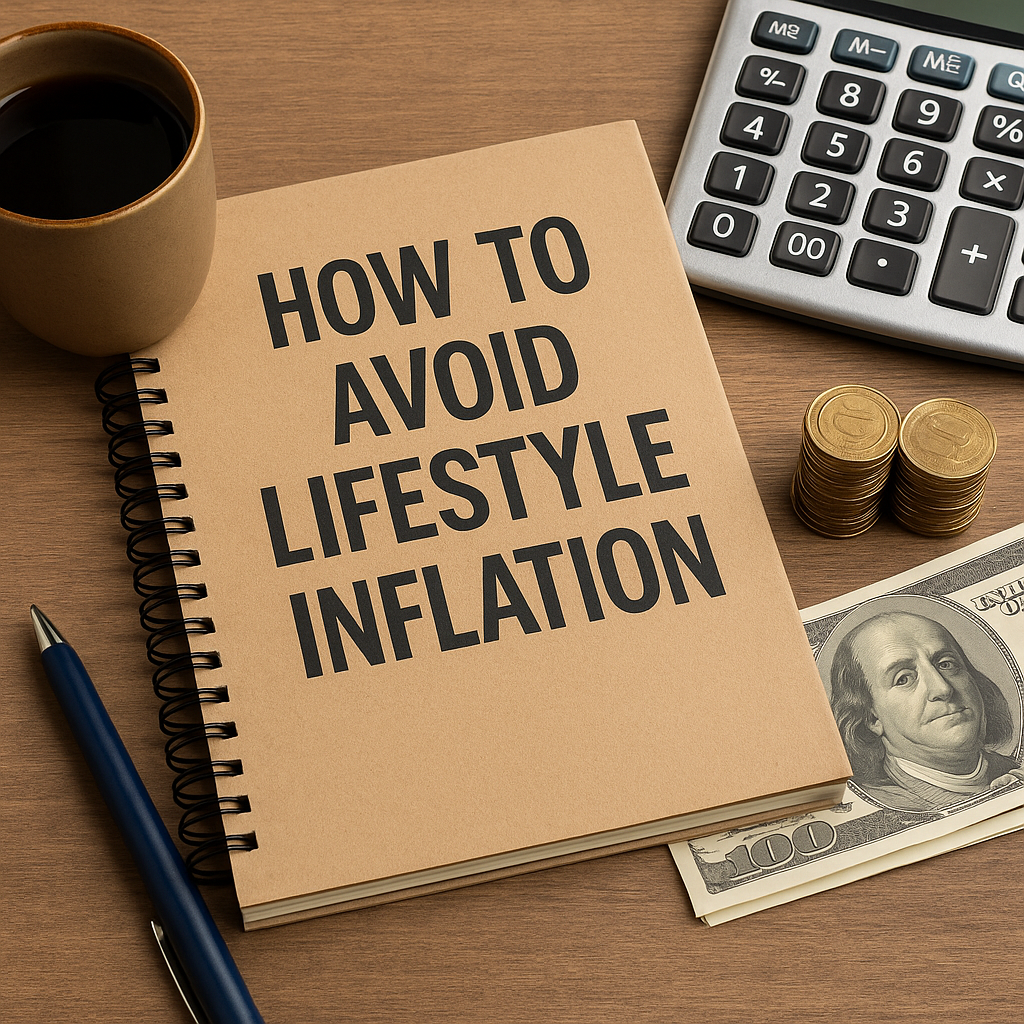What Is Lifestyle Inflation?
Lifestyle inflation happens when your spending increases as your income increases. It often feels natural—you get a raise, so you upgrade your car, dine out more, or move into a bigger apartment.
While it’s tempting to reward yourself, uncontrolled lifestyle inflation can sabotage your financial goals. More income doesn’t automatically mean more wealth if your expenses grow just as fast—or faster.
Why Lifestyle Inflation Is Dangerous
The biggest problem with lifestyle inflation is that it keeps you financially stagnant. If you’re constantly spending every dollar you earn, you miss the opportunity to:
- Build long-term savings
- Pay off debt faster
- Invest for your future
- Create financial independence
It also increases financial stress because you become dependent on a higher income to maintain your lifestyle.
Recognize the Signs of Lifestyle Creep
It often starts with small upgrades, such as:
- Replacing items that still work
- Upgrading to luxury versions of essentials
- Booking pricier vacations
- Eating out more frequently
- Taking on bigger monthly payments for cars or housing
These decisions add up and quickly consume your extra income without improving your financial health.
Set a Savings-First Mentality
Before spending more, increase your savings contributions. For every raise or bonus, aim to save at least 50% of the increase. For example:
- You get a $500 monthly raise
- Save $250 automatically
- Use the remaining $250 for lifestyle upgrades or enjoyment
This way, you improve your lifestyle gradually while building real wealth.
Build a “Raise Plan” Before the Money Arrives
Before you receive a raise, decide how you’ll use it. A good plan might include:
- 50% to savings or debt
- 30% to future goals
- 20% to lifestyle upgrades
Pre-planning helps prevent emotional or impulsive decisions once the money hits your account.
Continue Living Below Your Means
If you could live comfortably on your previous income, don’t rush to upgrade everything. Living below your means doesn’t mean living poorly—it means living wisely.
It gives you breathing room, freedom, and the ability to say yes to opportunities instead of being trapped by financial obligations.
Focus on Long-Term Satisfaction Over Short-Term Pleasure
Lifestyle inflation often brings instant gratification, but that feeling fades. Instead, focus on what brings true satisfaction:
- Peace of mind from having a fully funded emergency fund
- Freedom from debt
- Flexibility to change careers or travel
- Retiring early
These long-term rewards are far more valuable than temporary upgrades.
Create Boundaries for Lifestyle Spending
One way to control lifestyle inflation is to give yourself a specific monthly budget for “upgrades.” This could include:
- Eating out
- New clothes
- Home decor
- Tech gadgets
Having a fixed amount for these categories helps you enjoy life without sabotaging your savings.
Celebrate Without Spending
Not all wins need to result in a purchase. Celebrate raises, promotions, or bonuses in low-cost, meaningful ways:
- Share a homemade dinner with loved ones
- Take a day off to relax
- Start a gratitude journal
- Reflect on how far you’ve come financially
These moments build appreciation without draining your bank account.
Final Thoughts: Keep Your Lifestyle in Check While Growing Wealth
More income should lead to more freedom, not more pressure. Avoiding lifestyle inflation helps you maximize the benefits of every dollar you earn.
By staying intentional, living below your means, and prioritizing savings, you’ll be in control of your financial future—no matter how much you earn.
